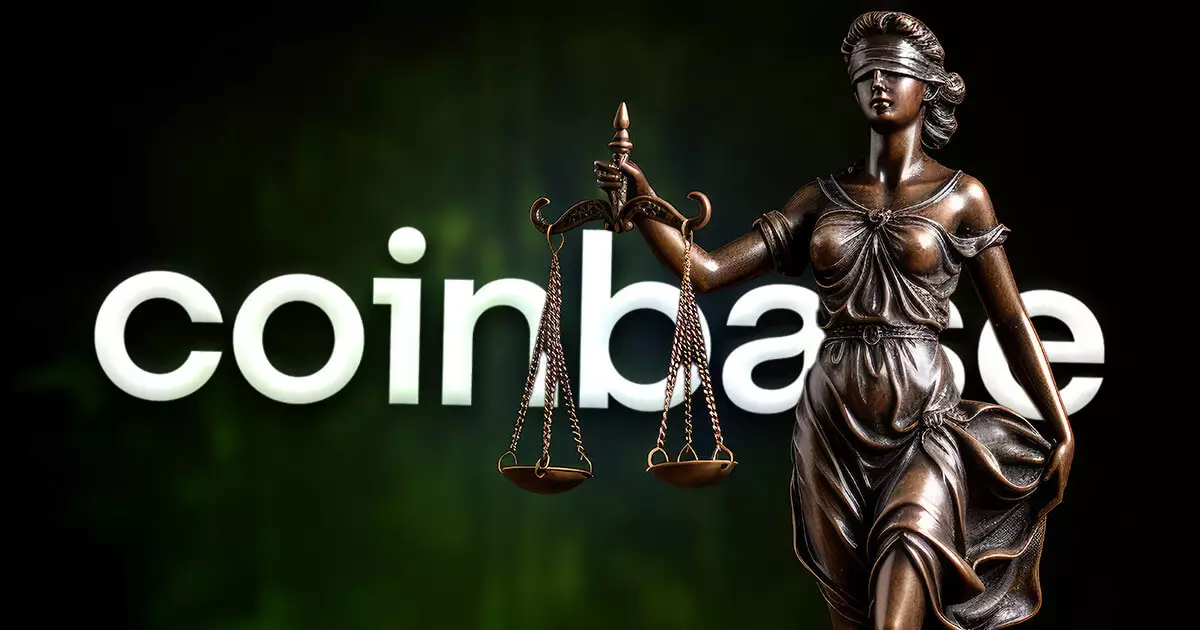The cryptocurrency market is notorious for its rapid fluctuations and intense competition. Recent developments have underscored the dramatic power dynamics at play, specifically in the realm of wrapped Bitcoin products. BiT Global has initiated legal proceedings against Coinbase, the largest cryptocurrency exchange in the United States, alleging anti-competitive behavior that threatens the very foundation of innovation within the sector. Through this legal action, BiT Global is not merely focusing on its immediate grievances but is calling into question the ethical and moral standards governing the cryptocurrency industry.
At the heart of BiT Global’s lawsuit filed on December 13 lies the accusation that Coinbase engaged in unfair practices to eliminate competition, specifically by removing wrapped Bitcoin (WBTC) from its platform in favor of its in-house product, Coinbase Wrapped Bitcoin (cbBTC). The allegations suggest a deliberate maneuvering by Coinbase to strengthen its market position while simultaneously creating leverage over transaction fees, a common revenue driver in cryptocurrency exchanges. BiT Global’s complaint cites antitrust violations, arguing that such actions undermine a competitive marketplace, which is crucial for the innovation that cryptocurrency projects promise.
Coinbase has refuted claims that the removal of WBTC was based on so-called “listing standards,” insisting that the delisting was a matter of regulatory compliance and quality control. However, BiT Global’s legal team countered this narrative by pointing to Coinbase’s recent decisions to list various meme coins, thus calling into serious question the rationale behind WBTC’s removal. The argument suggests that if Coinbase can allow lower-quality assets to remain on its platform, the elimination of WBTC must therefore stem from self-serving motives.
This lawsuit is not merely a personal feud between two entities; it holds significant implications for the cryptocurrency landscape as a whole. By positioning itself as a custodian for wrapped Bitcoin, BiT Global is trying to defend open market principles against the centralized control exerted by large exchanges like Coinbase. If successful, the suit could reaffirm the necessity of competition and innovation within the crypto space, enabling smaller players to thrive alongside established giants.
The fact that BiT Global has recently become a primary custodian of WBTC, following BitGo’s strategy to fragment custody across multiple entities, is indicative of a shifting landscape. With shared custody arrangements emerging from concerns over centralized control and transparency, a ruling in favor of BiT Global could serve as a catalyst for more decentralized approaches to cryptocurrency management. This would not only benefit investors but also serve to fortify the principles that underpin decentralized finance (DeFi).
Understanding the significance of this lawsuit requires a brief exploration of the wrapped Bitcoin market’s evolution. Wrapped Bitcoin (WBTC) has historically served as a bridge between the Bitcoin and Ethereum ecosystems, allowing users to leverage Bitcoin within decentralized applications. However, the inherent vulnerability of wrapped products to centralization risks has become increasingly pronounced, particularly as entities like Coinbase launch competing offerings such as cbBTC. Coinciding with this rise is an ongoing skepticism among decentralized protocol users regarding the stability and transparency of WBTC, especially given the influence of figures like Justin Sun.
This year, WBTC faced its share of challenges, forcing stakeholders to reckon with the implications of centralization. Despite retaining its status as a prominent cryptocurrency, the market capitalizations of both WBTC and cbBTC indicate a race for dominance that could drastically change how these wrapped products are perceived in the eyes of investors.
As the legal skirmish unfolds, it serves as a stark reminder of the unresolved issues regarding regulation and fair practices within the cryptocurrency sector. BiT Global’s lawsuit against Coinbase could signal a watershed moment for wrapped Bitcoin products, potentially reshaping the competitive landscape. Investors and stakeholders will keenly watch how this case progresses, as it could very well set precedents that define the interaction between large platforms and emerging competitors for years to come. The outcome could highlight either the resilience of decentralized principles or the pervasive risks of centralization that threaten the industry’s quest for innovation and fairness.









